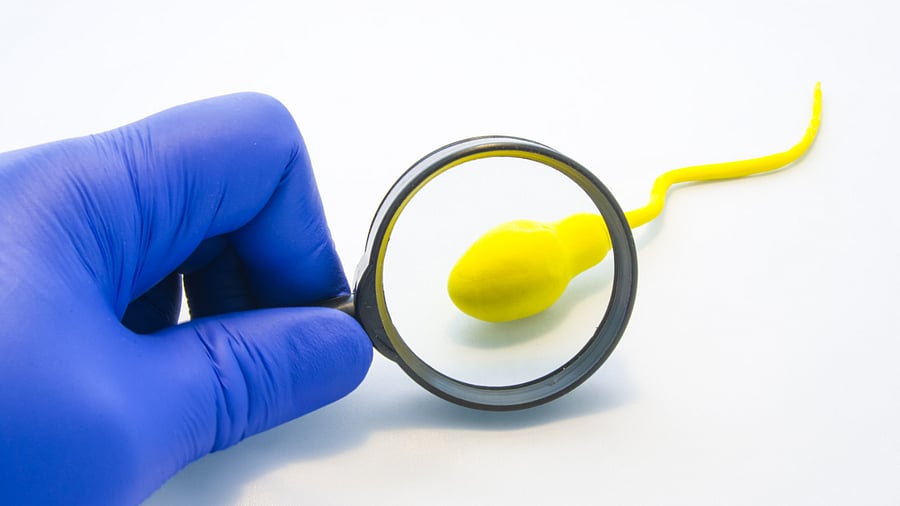
In a study published in the journal Human Molecular Genetics, Oxford University Press Academic, scientists have identified eight genes that can cause infertility among men when mutated
Approximately, one out of every seven couples is infertile worldwide. Male infertility accounts for 50 per cent of these cases. This can occur because of genetic and non-genetic reasons.
Hyderabad-based Centre for Cellular and Molecular Biology (CCMB) started working on identifying the genetic causes behind infertility two decades ago. Their previous studies showed that 29.4 per cent of infertile men carry Y chromosome abnormalities (micro, macro deletions, copy number variations and rearrangements). Mutations in mitochondrial and autosomal DNA account for 9 per cent of infertility among Indian men. The cause remained unknown for about 60 per cent of cases.
K Thangaraj, the lead investigator of this study and presently the Director of DBT-Centre for DNA Fingerprinting and Diagnostics (CDFD), Hyderabad, said that the scientists infertility cases that had no known genetic or nongenetic cause. They analysed about 30,000 genes of 47 infertile men and found eight genes that they suspected were behind infertility.
They repeated the tests among a larger sample of about 1,000 fertile and more than 1,000 infertile men from across India and established the presence of mutation of eight genes among the infertile men’s samples. They isolated and analysed one among the eight genes, called Centrine 1, from chromosome 18. It was found that a mutation in this gene led to defects in or arresting of cell division.
Scientists believe the eight genes are behind insufficient sperm production in 12 per cent of the cases. There are 17 variants of a total of eight genes the research has zeroed in on.
“These genes are passed over to men from their mothers,” Thangaraj told DH, adding that they remain dormant among women, and probably affect only sperm production among sons.
This research means the identified genes can now be added to the screening tests to identify genetic causes. Such screening tests will also say whether assisted reproduction can help a certain couple. Because, if the germ cell ( sperm that is not fully matured) itself is defective or carrying the mutation, there is no way assisted reproduction can work.
The study can also help in “developing improved management strategies for male infertility,” said Dr Vinay Kumar Nandicoori, Director, CCMB, in CCMB’s press note.
